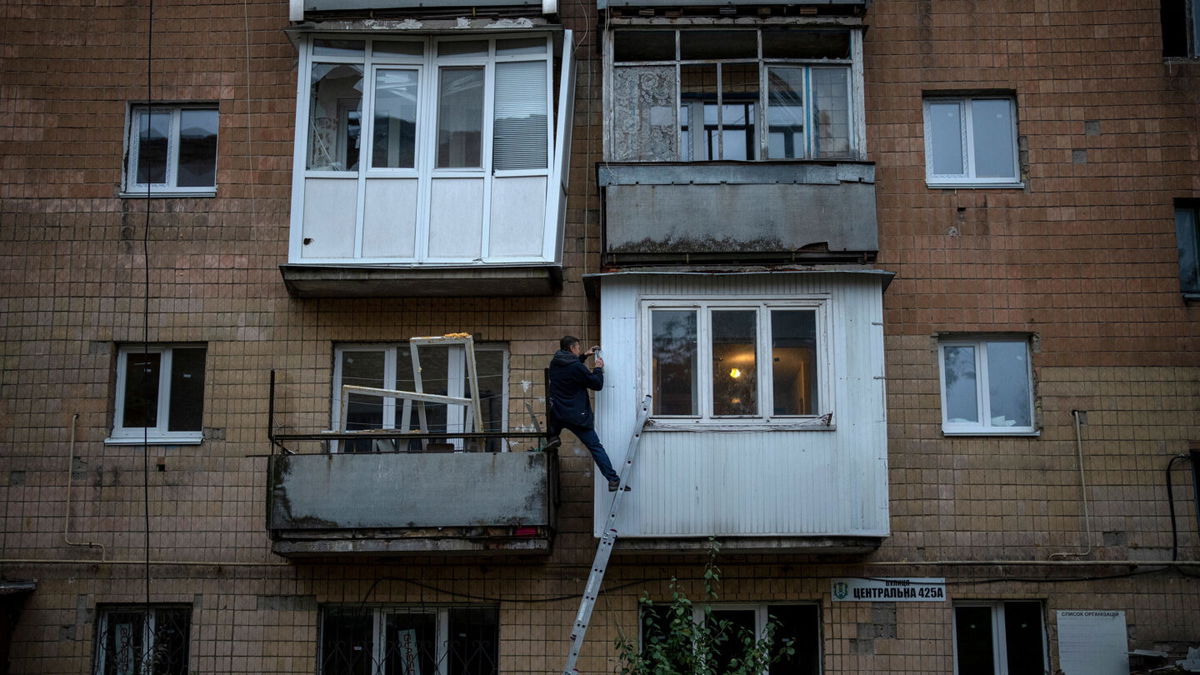Ukraine tells refugees not to return this winter as Russian strikes put energy grid in peril

Ukraine has asked refugees who fled the country in the wake of Russia's invasion not to return home this winter
By Rob Picheta, CNN
Ukraine has asked refugees who fled the country in the wake of Russia’s invasion not to return home this winter, after Russian drone and missile strikes threatened to overwhelm the country’s fragile power grid.
Ukraine’s deputy prime minister, Iryna Vereshchuk, advised Ukrainians in a video message on Tuesday “not to come back just yet.”
“We need to survive this winter. (If people come back) the electrical grid might fail,” she said.
The warning comes after weeks of strikes on Ukraine’s energy infrastructure, which have caused blackouts across the country and threatened a difficult winter for those still living there.
Russian missiles and Iranian-made drones have “destroyed more than a third” of Ukraine’s energy sector, President Volodymyr Zelensky told an international conference on Ukraine reconstruction on Tuesday.
“You see what Russia is doing. Everybody sees that,” Vereshchuk said. “Coming back now means exposing yourself, your children, vulnerable relatives to this.”
About 7.7 million people have fled Ukraine since the beginning of the war, according to the United Nations High Commissioner for Refugees. Most have resettled elsewhere in Europe, with Poland and Germany each recording the arrival of more than one million refugees.
Vereshchuk hinted that they may be welcomed back once the winter has passed. “In spring, I would really like for us to work together to rebuild our Kharkiv region, Kherson region and the rest of our cities and settlements here in Ukraine,” she said.
Vereshchuk added that she understood that the situation could get worse, but whatever happens, “we survive this winter and then we think of everything else.”
Power plants and other key sites have been targeted by Russian air strikes in recent weeks, which Moscow launched after seeing Kyiv’s forces regain ground in the northeast and south, swinging the momentum of the ground war back toward Ukraine.
“We are particularly concerned about people in eastern and southern oblasts who have suffered relentless shelling for months, and have been left utterly traumatized — their ability to cope is wearing thin,” Anna Jefferys, a spokesperson for the United Nations Office for the Coordination of Humanitarian Affairs (OCHA), told CNN.
“Of course, it is always the most poorest and most vulnerable who suffer the most. Many of those who did not flee attacks on their towns were the elderly, the disabled or the chronically sick, who felt they had no choice but to stay,” Jefferys said.
Addressing the meeting in Berlin by video link, Zelensky said the attacks were aimed at making “it harder for us to endure this winter.”
Speaking at the conference, European Commission President Ursula von der Leyen described the strikes as “pure acts of terror.”
Moscow was “deliberately leading targeted attacks on civilian infrastructure, with a very clear aim: to cut off men, women and children from water, electricity and heating as the winter is approaching,” she said. “These are pure acts of terror. Russia tries to paralyze Ukraine, but we will not let this happen.”
Meanwhile, German Chancellor Olaf Scholz called for a “new Marshall Plan” to rebuild Ukraine, aimed at planning and financing the post-war reconstruction effort.
“We don’t know when this war will end. But end it will,” Scholz said, adding that helping Ukraine recover would be “a challenge for generations” and would require “the combined strength of the entire international community.”
The-CNN-Wire
™ & © 2022 Cable News Network, Inc., a Warner Bros. Discovery Company. All rights reserved.
CNN’s Jonny Hallam, Inke Kappeler and Jo Shelley contributed reporting.
